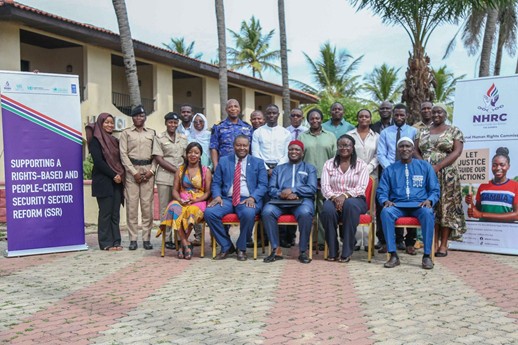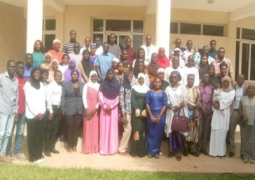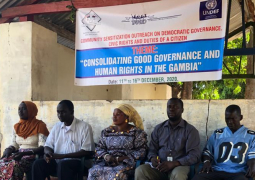
The move forms part of The Gambia’s broader security sector reform (SSR) agenda, which seeks to professionalise and transform security institutions into accountable, rights respecting bodies in line with democratic principles.
Addressing the gathering on behalf of the OHCHR, Yvonne Masarakufa commended the NHRC and ONS for their leadership in promoting human rights-based approaches to national security governance.
She described the collaboration among these institutions as something that reflects a strong commitment to ensuring that the country’s security and human rights agendas progress together.
Masarakufa outlined that human rights and security are not competing priorities, but rather are complementary pillars of peace and justice.
She noted that international and regional human rights mechanisms, including the Universal Periodic Review (UPR) and treaty bodies, provide The Gambia with valuable guidance to enhance institutional accountability and align with global standards.
Implementing these recommendations, she added, not only fulfils the country’s legal obligations but also fosters public trust, legitimacy, and lasting peace.
She maintained that the OHCHR will continue to support national efforts through technical assistance, policy advice and capacity development to build a security sector that upholds integrity and respect for human dignity.
Emmanuel Joof, chairperson of Nation Human Rights Commission (NHRC), underscored that security sector reform is central to the Gambia’s democratic transition.
Thus, the workshop, he added, provides a platform for strengthening understanding of how human rights principles can be integrated into the work of the security forces.
Joof recalled that years of abuse and impunity under the previous government eroded public trust and weakened the legitimacy of state institutions, saying the reform process offers an opportunity to rebuild that trust by ensuring that the country’s security agencies operate with professionalism, accountability, and respect for the rights of all citizens.
Chief of Staff Lamin Kinteh on behalf of the Office of National Security, reaffirmed government’s unwavering commitment to reforming the security sector as part of its transitional justice process launched in 2017.
The vision, he added, is to build professional, inclusive, and citizen-centred security institutions that protect national interests while respecting the rule of law.
Kinteh added that recommendations from international mechanisms like the UPR and UN treaty bodies serve as a roadmap for aligning national policies with international human rights standards.
He also outlined the importance of professionalism, accountability, and collaboration among security institutions to ensure transparency and coordination.





